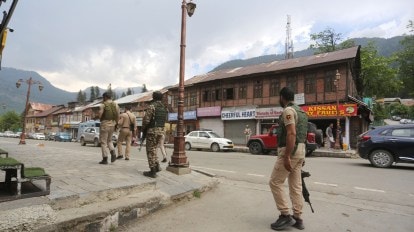Introduction
Two months after the deadly Pahalgam attack that shocked India and escalated tensions with Pakistan, Indian authorities now claim that all militants responsible for the Pahalgam massacre were Pakistani nationals linked to the UN-proscribed terror group Lashkar-e-Taiba (LeT).
The attack, which took place on 22 April in Baisaran near Pahalgam — a popular tourist destination in Indian-administered Kashmir — left 26 people dead, mostly tourists, and threatened to push the two nuclear-armed neighbors to the brink of another war.

NIA Confirms All Attackers Were Pakistanis
Initially, sketches released by police identified two suspects as Pakistani nationals and one as a local Kashmiri. However, after weeks of investigation, the National Investigation Agency (NIA) now states that all three militants involved were Pakistani. The men are said to be affiliated with Lashkar-e-Taiba, a group long accused of carrying out multiple terror attacks in India.
In a statement, NIA revealed that two local Kashmiri men had been arrested for allegedly sheltering the attackers before the assault. The suspects reportedly offered refuge to the armed militants in a temporary seasonal dhol (hut) in the days leading up to the attack. However, details about the arrests and any statements made by the detainees remain confidential as they are still in custody.
Pakistan Denies Involvement
While Pakistan has not officially commented on these latest claims, it had previously rejected any involvement in the attack. Shortly after the incident, a little-known group called The Resistance Front (TRF), believed to have ties with Lashkar-e-Taiba, initially claimed responsibility but later withdrew its statement. This further fueled suspicion over external involvement in orchestrating the massacre.
Escalation of Indo-Pak Tensions

The April 22 attack marked a significant escalation in the already volatile Kashmir conflict. Within days, India responded by revoking the 1960 Indus Waters Treaty, a landmark water-sharing agreement that had withstood decades of tension. Pakistan retaliated by withdrawing from the 1972 Simla Agreement, which was intended to resolve disputes through peaceful bilateral dialogue.
On 7 May, the conflict further intensified when India launched air and missile strikes targeting what it described as “terror infrastructure” in Pakistan and Pakistan-administered Kashmir. Pakistan denied these claims, asserting that the targets were civilian areas and countered by launching missiles and deploying drones into Indian territory.
Hostilities continued until 10 May, when US President Donald Trump successfully mediated a temporary ceasefire, preventing the conflict from spiraling into a full-scale war.
Mass Detentions and Search Operations
Following the Pahalgam attack, Indian security forces launched an extensive manhunt across Kashmir. Thousands of individuals were detained for questioning during large-scale search and combing operations. Despite these efforts, the three attackers remain at large, further complicating the investigation.
Political and Diplomatic Implications
The Pahalgam incident has severely strained India-Pakistan relations. With both sides accusing each other of harboring or sponsoring terrorism, diplomatic channels have become increasingly fragile. The collapse of both the Indus Waters Treaty and Simla Agreement signals a breakdown in decades-old frameworks designed to contain hostilities.
Analysts warn that renewed violence and tit-for-tat escalations could destabilize the region even further. As both countries head into high-stakes international summits, including the upcoming NATO meeting in The Hague, Kashmir is likely to feature prominently in behind-the-scenes discussions.

Impact on Kashmir’s Tourism Industry
The attack not only had geopolitical ramifications but also dealt a devastating blow to Kashmir’s tourism sector, a vital lifeline for the local economy. Tourism-dependent businesses suffered immediate cancellations, and government-imposed closures of key tourist sites remain in effect for much of the valley. Some spots have only recently begun reopening as visitors cautiously return, but confidence remains fragile.
According to Chief Minister Omar Abdullah, “The attack’s impact was immediate and widely felt. There was a mass exodus of tourists and widespread cancellations. The season is effectively lost for us this year.”
Conclusion
As Indian investigators continue to strengthen their claims linking the Pahalgam attackers to Lashkar-e-Taiba, tensions with Pakistan remain at a boiling point. The fragile peace brokered by external powers may not hold if another major incident occurs. For the people of Kashmir, the tragic loss of innocent lives and the disruption of daily life continue to serve as harsh reminders of the region’s unresolved conflict.
For continuous updates on the Kashmir conflict and India-Pakistan relations, visit our Kashmir Conflict News Section.
External References
Image
